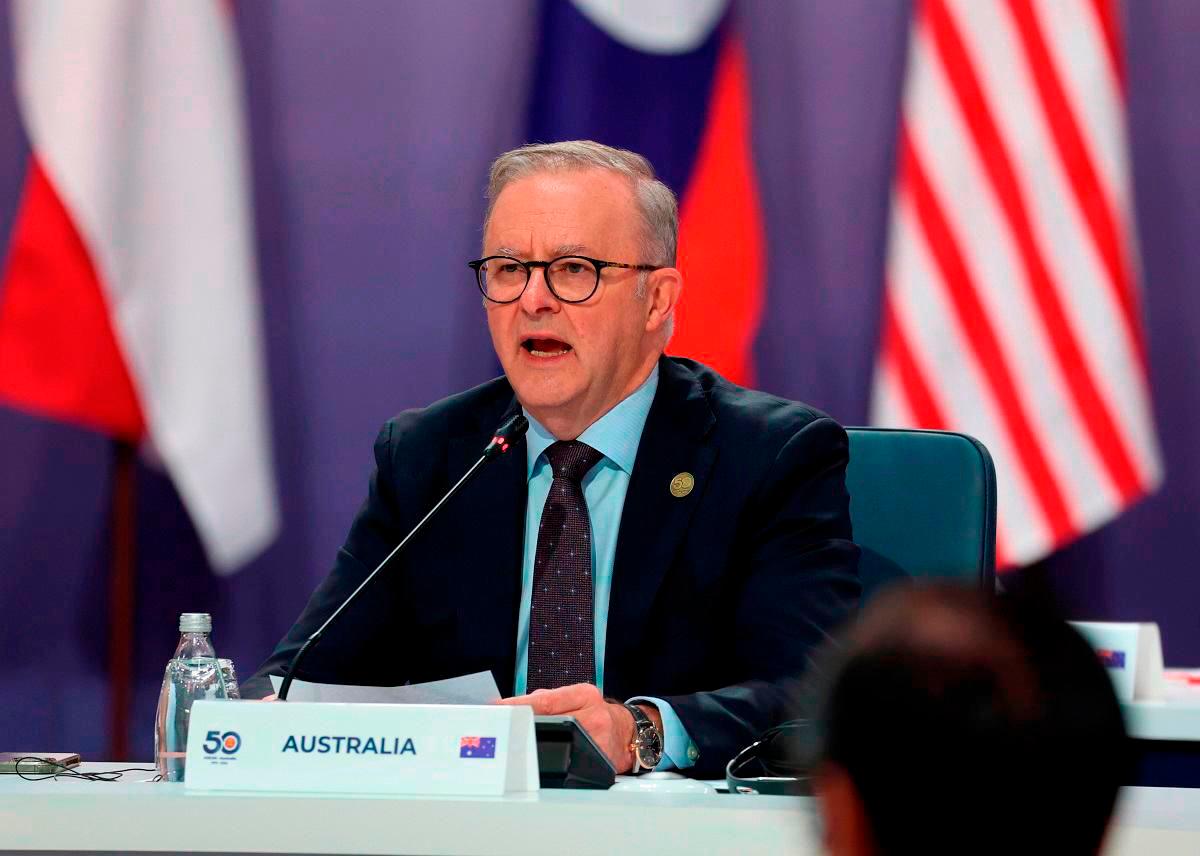BEIJING: Australian Prime Minister Anthony Albanese begins his second official visit to China, aiming to reinforce stabilised trade relations despite lingering geopolitical strains.
The trip, spanning Beijing, Shanghai, and Chengdu, comes after a turbulent decade marked by trade disputes and security disagreements between the two nations.
Relations improved late last year when China lifted its ban on Australian rock lobster imports, the final barrier in a trade war that began in 2017.
“Trade is now flowing freely, to the benefit of both countries and to people and businesses on both sides,“ Albanese said before departing.
However, the visit coincides with rising regional tensions, particularly over China’s expansive territorial claims in the South China Sea.
Albanese emphasised that all issues, including security concerns, will be discussed with Chinese leaders, including President Xi Jinping. “We cooperate where we can, we disagree where we must,“ he stated.
China’s foreign ministry welcomed the visit, expressing hope for stronger bilateral ties. “China hopes that through this visit, the two sides will strengthen communication, enhance mutual trust, and expand practical cooperation,“ said spokeswoman Mao Ning.
The trip occurs amid uncertainty over Australia’s alliance with the US, as President Donald Trump’s aggressive trade policies push allies to diversify partnerships. Analysts note the delicate balancing act Albanese faces.
“The visit will not be a walk in the park,“ said Huong Le Thu of the International Crisis Group.
Security concerns persist despite trade improvements. Australia recently banned Chinese AI chatbot DeepSeek from government devices over privacy risks, a move Beijing called politically motivated.
Additionally, tensions flared in February after a military encounter between the two nations.
Another contentious issue is Darwin Port, controlled by a Chinese firm but facing potential forced sale by Australia.
Experts suggest China aims to downplay such disputes to project normalised relations. “Beijing probably wants the Darwin issue to go away,“ said analyst Jingdong Yuan.
China remains Australia’s largest trading partner, accounting for nearly a third of its total trade.
Albanese’s delegation includes business leaders attending a CEO roundtable in Beijing, with discussions extending to tourism and sports in Shanghai and Chengdu. - AFP









